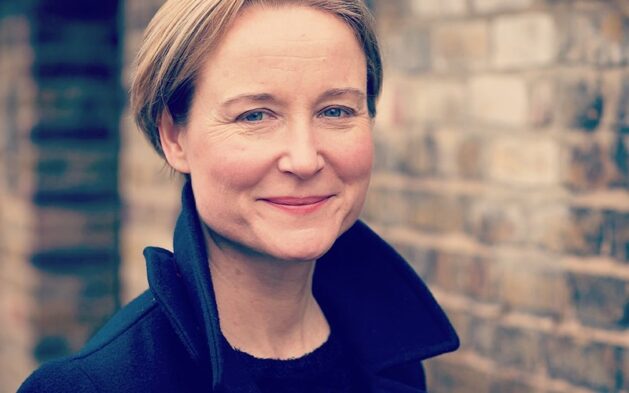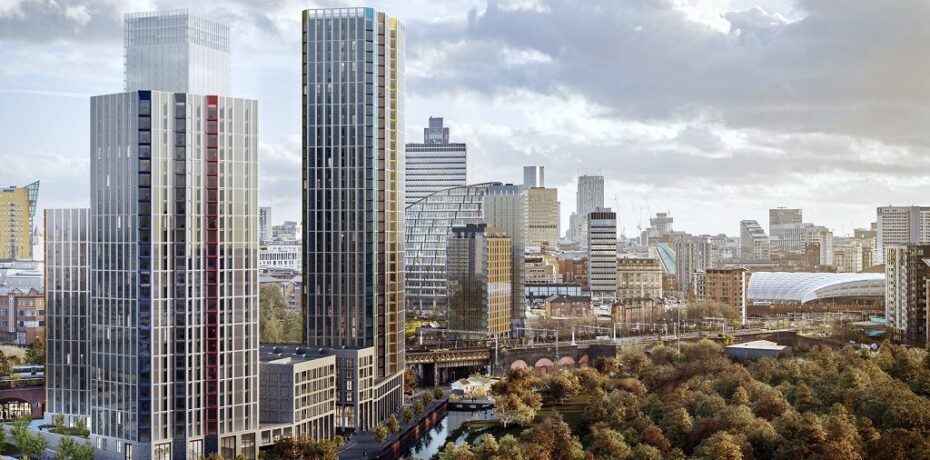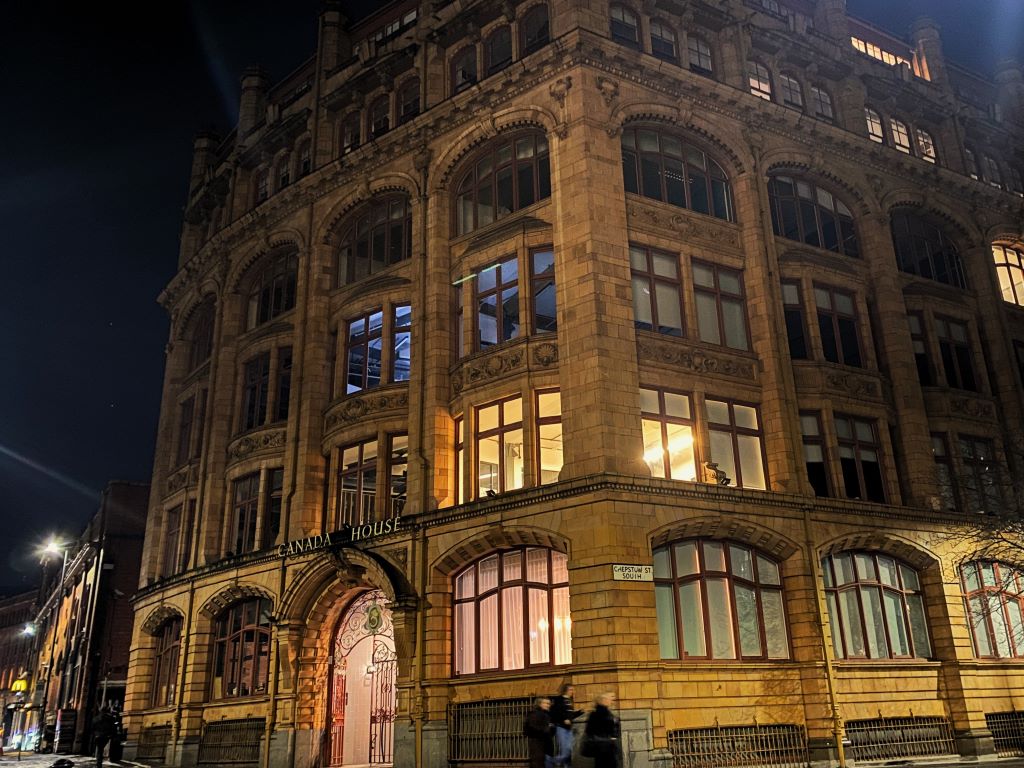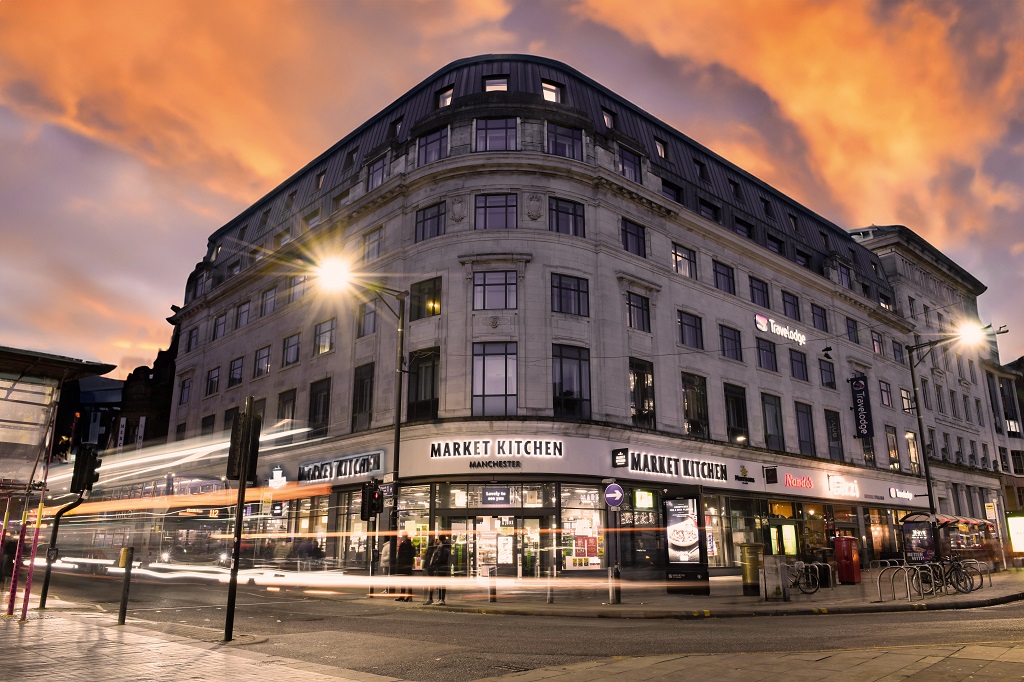The Subplot
The Subplot | Manchester meltdown, Middle East money, Goldman Sachs
Welcome to The Subplot, your regular slice of commentary on the North West business and property market from Place North West.
THIS WEEK
- City council meltdown: following the surprise departures of the growth director and the cabinet member for regeneration, who will go next at Manchester City Council? Will chief executive Joanne Roney be among those on the way out?
- That wave of Hong Kong investment coming to Manchester? Don’t hold your breath.
- Birmingham wins something. Try to be happy for them.

THINGS FALL APART
 Town Hall turmoil
Town Hall turmoil
Louise Wyman, Manchester City Council’s strategic director of growth and development, will leave her job after less than a year. A cabinet member is leaving, more departures are predicted, the chief executive is under attack. What’s going on?
In the midst of a pandemic, with a city economy struggling to recover its mojo, the surprise loss of your big brain is seriously unhelpful. But that’s what just happened to Manchester City Council. Louise Wyman was appointed in May 2020 to replace long-serving development boss Eddie Smith. A high-profile choice with a stunning CV and Whitehall links, she took up the post in July 2020, but by last weekend she’d had enough: preparation on Monday was followed by an announcement on Tuesday.
Hard to explain
The official statement said Wyman wanted to be closer to her family, and that the job needed someone in the city full-time. But her quick turnaround echoes the here-today-gone-tomorrow tenure of housing director Jon Sawyer, appointed to shake things up in 2018 and gone by late 2019. At the political level, too, things are changing: the same week Wyman threw in the towel so did (highly regarded) Labour cabinet member for housing and regeneration Cllr Suzanne Richards.
Trouble at the top
Meanwhile there is a groundswell of doubt in Labour ranks about Joanne Roney, the chief executive. Patience, already worn thin, will not be improved by the Wyman departure. Labour members, including cabinet members, are unimpressed with performance so far and think that Roney’s deputy, Carol Culley, would suit the job better. It looks like a high-level meltdown. A statement from the city council denied Roney’s departure was imminent. Subplot spoke to sources in Labour politics and city property, and there are a number of competing theories. Some, or all, could be true.
Theory No 1: the comet’s tail
This theory is based on the idea that the council is now four years into the (maybe) five-year process of recovering from the departure of charismatic chief executive (and Roney’s predecessor) Sir Howard Bernstein. “Some new appointments stick, some don’t, and a few more will move on before we’re finished,” says one very close observer. This theory paints Wyman as a thoughtful outsider, suddenly adrift amidst the sharp knives and brutal, macho simplicities of big city politics. On this reading it’s all about round pegs and square holes.
Don’t quite believe it
The damsel in distress argument is implausible because Wyman is by no means an innocent lamb adrift in a world of wolves. Before joining Manchester she was director of design and inclusive growth at the West Midlands Combined Authority and before that director of strategy and engagement at Homes England. You don’t survive in those kind of environments without some guile. But who knows? So, hold the thought, and let’s move on to Theory No 2.
Theory No 2: mis-selling
“The council has now burned through two directors of housing in as many years, we’ll soon have done the same on development directors. The problem is new recruits are told it’s a great new project they will be a part of but when they get here they discover nobody needs creative people because nothing is changing. All meaningful decisions about the future of Manchester were taken years ago. Good people get bored and leave because we pitch jobs to people in a way that just isn’t true,” says one council insider.
Yes, but
Political sources close to council leader Sir Richard Leese do not give this theory the time of day. “It’s nonsense, the city is dynamic, there are always opportunities,” says one. However, property people and some Labour people say it is plausible. The explicit subtext is that Sir Richard’s influence is so out-sized it leaves no room for anyone else. If this theory is right, it pushes the problem further up the organogram to the political leadership, which is where we begin Theory No 3.
Theory No 3: the last days of Sir Dickie
It goes like this: Sir Richard has been in post so long that the important distinction between political leadership and the senior team has become blurred. Sir Richard acts like the chief executive, and so long as he does it marginalises the actual chief executive Roney and other senior figures. Newcomers are particularly likely to get squeezed.
Tall poppies
The death of one long-standing deputy (Sue Murphy) and the departure of another (Bernard Priest) from the deputy leader role means there are now just a handful of people who can speak truth to power. Meanwhile, another cabinet member decides to step back from the front line: Cllr Roberts, executive member for housing and regeneration, will not seek re-appointment next month. This may be connected to discontent with the council’s affordable housing policy (Subplot approached Roberts for comment). Increasingly isolated, with tall poppies losing their heads all around him, the Leese administration enters its final year ahead of what is widely assumed to be a retirement date before the May 2022 local elections. Leese turns 70 tomorrow.
What happens next?
Make no mistake, the stakes are high. If the council lose any more of the existing top team then things will look grim. “Questions will inevitably be asked about whether they can do succession. They really have to get this right,” one very senior, very sober observer told Subplot.
Sharp knives
Meanwhile Labour backbenchers are restless. A super-sized group of 91 Labour councillors – the largest Labour council group in the country – are largely spectators, rather than participants, in the big decisions. That creates resentment. Only eight of them get to serve in the cabinet. Give them something to do, and they might be happier. Yet discipline remains fairly solid because competing factions struggle to form a coalition capable of ousting Leese or agreeing a replacement.
Conclusion: the process of change at Manchester Town Hall is not yet over.
DRIVING THE WEEK
Hong Kong on the Irwell: won’t happen
Hong Kong investors are not making the impact on Manchester that some hope, while Middle East investors are out-performing expectations. Two debut deals tell the story.
Two funders made their Manchester debut last week. Hong Kong-based Bank of East Asia stumped up £13m for Far East Consortium’s 80-unit Northern Gateway residential scheme. Israeli-backed Ashtrom Properties paid £82m for Patrizia/Greater Manster Property Venture Fund’s 170,000 sq ft office block at 8 First Street (a nice payday for them of about £7m). The deals tell a story about Manchester’s international appeal: Middle East comes in big, Far East comes in small.
Hong Kong no show
If you squint, the towering parts of Manchester and Salford could just about pass for Kowloon. But hopes that the gradual implosion of Hong Kong’s democracy would spur a surge of investment in safe-haven Greater Manchester seem to be mistaken. Exclusive data from Savills shows that Far Eastern investment in UK commercial real estate was on a long-term upward trend until 2019’s Brexit turmoil and Covid-19 took the heat out. During that period Manchester and Salford’s joint share bobbed around on its own pattern, sometimes going down when UK volumes went up, and never really taking off.
Those numbers in detail
Manchester’s best year was 2017 when £117m was invested, beating the £84.5m of 2015. Even making allowances for two confidential deals (Peterson Asset Management, the Singapore business investing in Trilogy’s Great Northern, and Gynko Tree Investments at 1 Angel Square) the figures are fairly modest. The most recent is for 2019, which scored a shade over £10m: 2020 was a write-off. Recent data in the office market points to an even more pronounced trend towards London: in 2020, a cool 70% of the £2.7bn invested in UK offices by Far Eastern investors went to London. So far in 2021 it’s 98% of £442m. Will Manchester mature into Hong Kong on the Irwell? “Not as far as I can see,” says Olly Foster, investment director at Savills.
Buying apartments instead?
Maybe not so much. Rules governing the off-plan sale of apartments have been tightened in Hong Kong and a series of scheme forward-selling failures have left investors cautious says Elliot Vure, sales director at Beech Holdings, and a specialist in Mid- and Far East investment. That hasn’t stopped buyers but there’s not much evidence of a surge. Vure reckons Hong Kong accounts for about 7% of his sales, which isn’t bad but it’s tiny compared to individual Saudi investors who now account for approaching 20% of his sales, up from 12% three years ago.
Looking in the wrong place
The real story is Middle East investment, as the First Street deal shows. Manchester is a safe haven, with low entrance fees compared to London. Commercial office yields up to 100 basis points adrift from European rivals make it tempting, and help satisfy Middle East investors’ cash-on-cash return requirements. The same is true in the residential sector. “Middle East investors, both Israeli and Gulf, have always been aware of Manchester and in the last five or so years it has looked more affordable than London, which has changed perceptions. Often Gulf investors are buying for their student children, and the link with the city is via the universities. Isreali investors are more data-driven,” says Vure.
Conclusion: if Manchester had more £100m-plus lot sizes in the office, residential or logistics sectors, it would probably get more Hong Kong investment. Equally, if my aunt had balls she’d be my uncle.
IN CASE YOU MISSED IT…
 Don’t worry, be happy
Don’t worry, be happy
Manchester missed out on the 50,000 sq ft Goldman Sachs requirement. Does it matter?
It took 16 months for Goldman Sachs to do what almost everyone expected it to do: announce that it would open a first out-of-London office in Birmingham.
Advised by JLL, the Goldman Sachs team began their search in late 2019, fanfared by the national newspapers who (correctly) tipped Birmingham. Whether they ever seriously looked for a Manchester base is a moot point.
The price of success
With specialisms in quantitative strategists, cyber security, software engineering and systems engineering, the 50,000 sq ft engineering department requirement would have fitted nicely into Manchester’s growing tech cluster. What probably did for Manchester was a mix of predetermined preference plus the fact that Manchester’s IT salaries are now chasing London’s (see Subplot 19 January). The cost advantage Goldman Sachs hoped to reap would be limited.
Numbers do not lie
Birmingham’s office market is modest compared to Manchester’s, and judging by recent data is not likely to challenge it any time soon. Annual office take-up has been on a downward trend for several years. In Q1 central Birmingham take-up totalled just 50,000 sq ft across 20 (inevitably small) deals, since when its been tumbleweed. We await the Manchester figures, likely to be much stronger. Birmingham’s speculative schemes due for completion this year, like Tristan/Sterling’s 103 Colmore Row (pictured above), need all the help they can get. If Goldman Sachs smells a bargain, who can blame it?
The Subplot is brought to you in association with Cratus, Bruntwood Works and Morgan Sindall.






This is hilarious. When did PNW become The Sun? Hollow claims and alarmism.
By Anon
So many of Manchester’s decisions seem archaic when compared to the great things going on elsewhere, including just across the Irwell. If Manchester doesn’t attempt to gain some social and environmental benefit from all this cash, then the trend of skyscrapers above potholes and rough sleepers won’t get better. Poor livability will eventually lead to less inward investment.
By Dickie Bye Bye
Only the most greedy shallow and unaware could ever have seen potential Hong Kong investment as anything worth having.
Chinese investment is not a benign influence. It emanates from a regime that does not have a private sector. It’s all different shades of state action. If you chase it – you are a facilitator and enabler of such practices. But hey – as long as they aren’t right in your face and it gets some resi units shifted everything is great, right?
By Cynic
I enjoy this section and have missed the previous ones. David Thame gets it. Well done. Replaces the Insider Trader feature very nicely. Always enjoyed that for the x previous years. Well done keep it up.
By Fair
“…the trend of skyscrapers above potholes and rough sleepers won’t get better. Poor livability will eventually lead to less inward investment…” Totally agree.
Young creative types need to afford to live in the city centre too.
By Anonymous